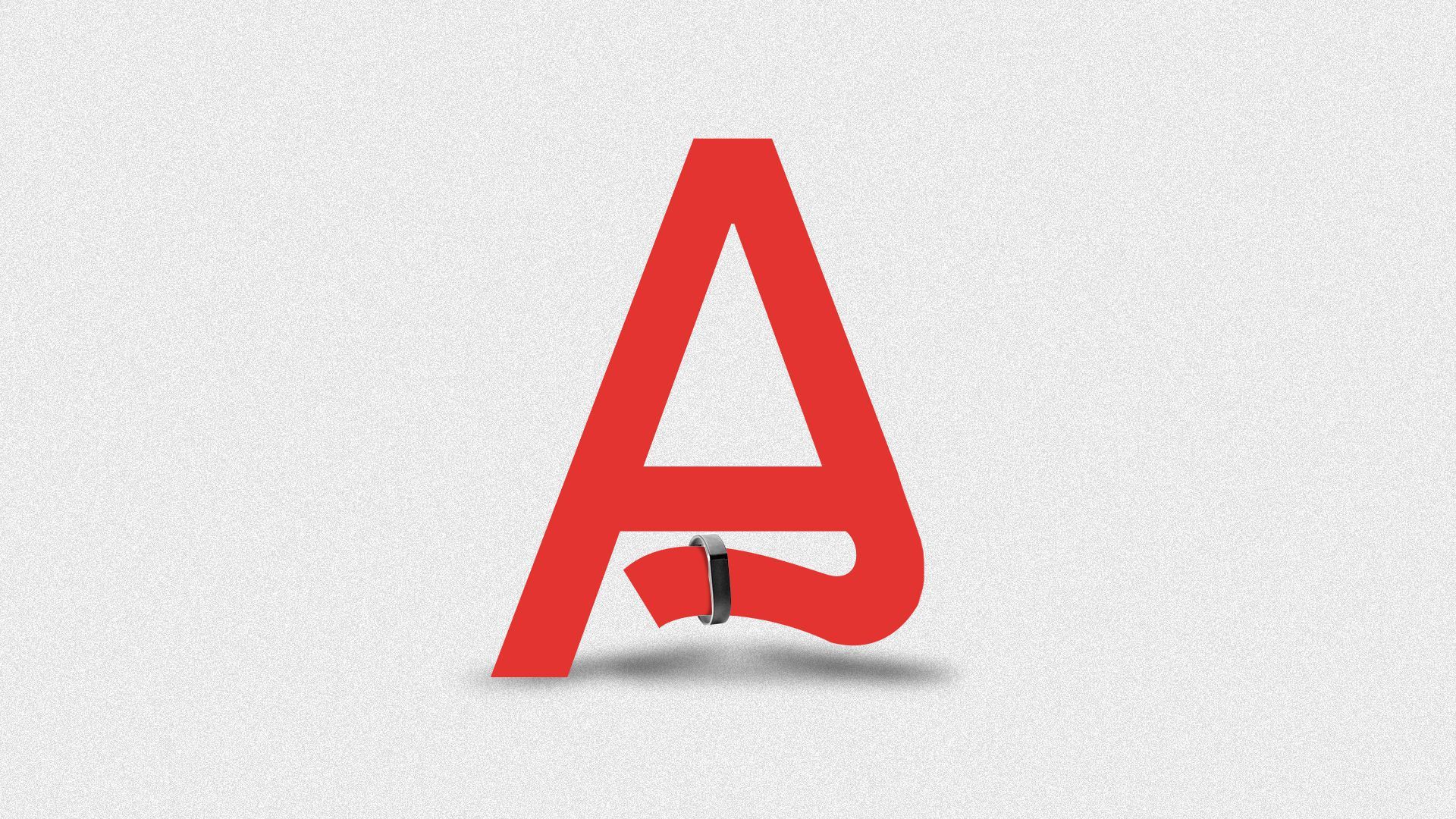Oct 19, 2020 - Technology
The long wait for Google's $2.1 billion Fitbit deal
Add Axios as your preferred source to
see more of our stories on Google.

Illustration: Aïda Amer/Axios
Google's $2.1 billion deal for Fitbit might go down as the only merger to qualify as both pre-pandemic and post-pandemic.
- Driving the news: European Union antitrust regulators have again extended their decision deadline, this time to Jan. 8, 2021. And it could be further complicated by U.S. authorities, who are drawing up a broader antitrust case against Google and/or its parent company Alphabet. The deal was originally announced on Nov. 1, 2019.
The delay is about data: Google has always said the acquisition is centered on devices, but that alone hasn't allayed regulator fears over what happens to the information those devices collect.
- Reuters reports that Google recently offered concessions to the European Commission: It would "restrict the use of Fitbit data for Google ads, facilitate rival makers of wearables seeking to connect to the Android platform and allow third parties’ continued access to Fitbit users’ data with their consent."
- These revisions appear to have satisfied the EC, but that could change once analyzed by outside critics. Plus, again, there are those pesky Americans.
Were regulators to block the deal, in Europe or the U.S., Google would be required to pay Fitbit $250 million.
Meanwhile: Fitbit continues to hemorrhage market share.
- IDC reports that Fitbit's piece of the overall wearables market fell nearly 30% between Q2 2019 and Q2 2020, from 4.6% to 2.9%, while its share of the wrist-worn wearables market fell by a similar percentage, from 9.8% to 7.3%.
- Fitbit stock has spent most of 2020 trading below $7 per share, even though Google's deal would value it at $7.35 per share in cash.
The bottom line: This isn't the world's largest or most consequential tech merger of the past 12 months, but it is the most fraught.
